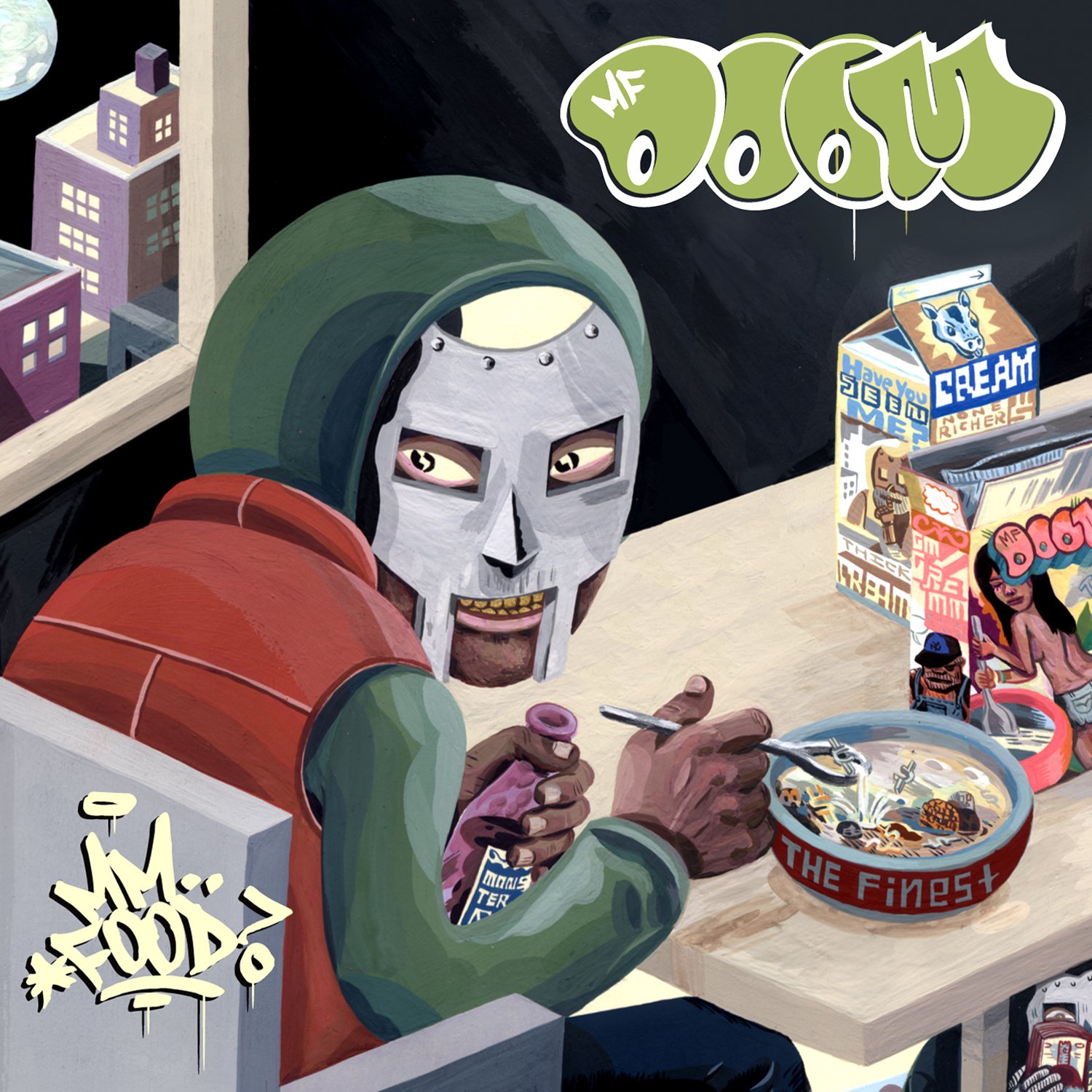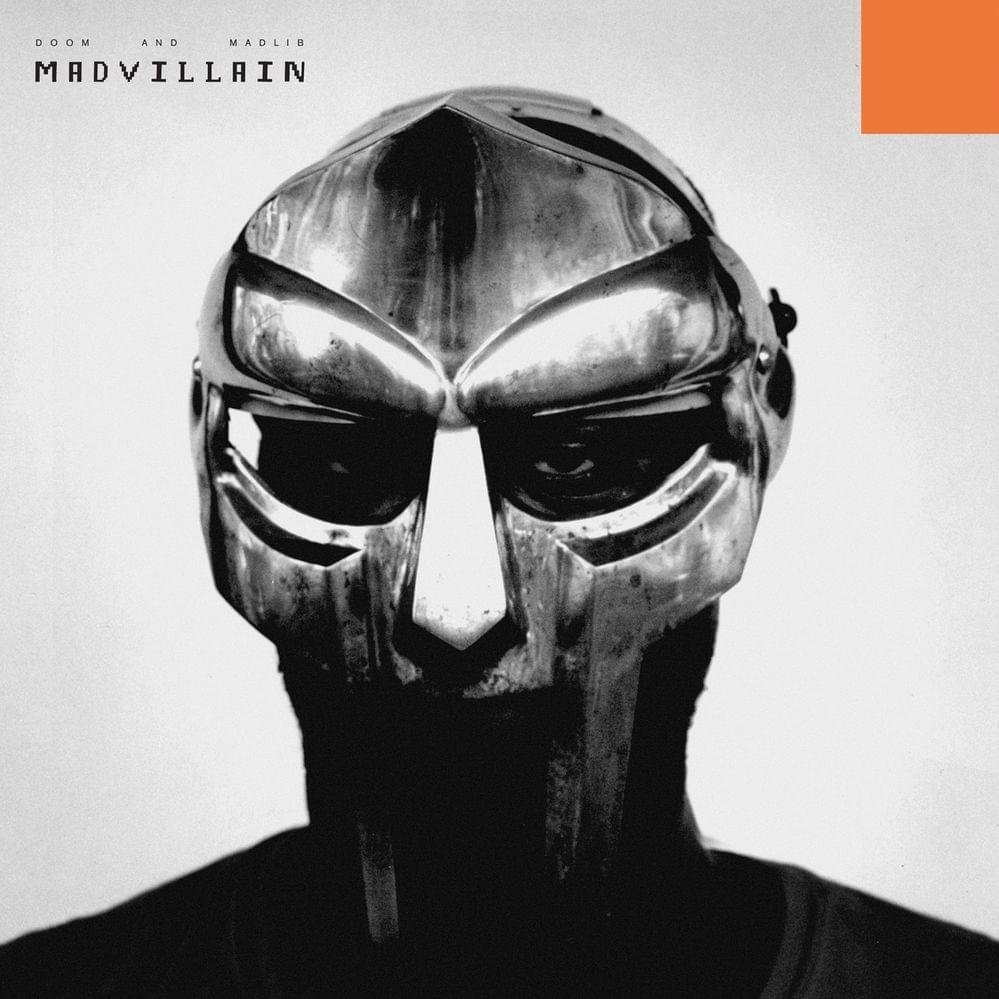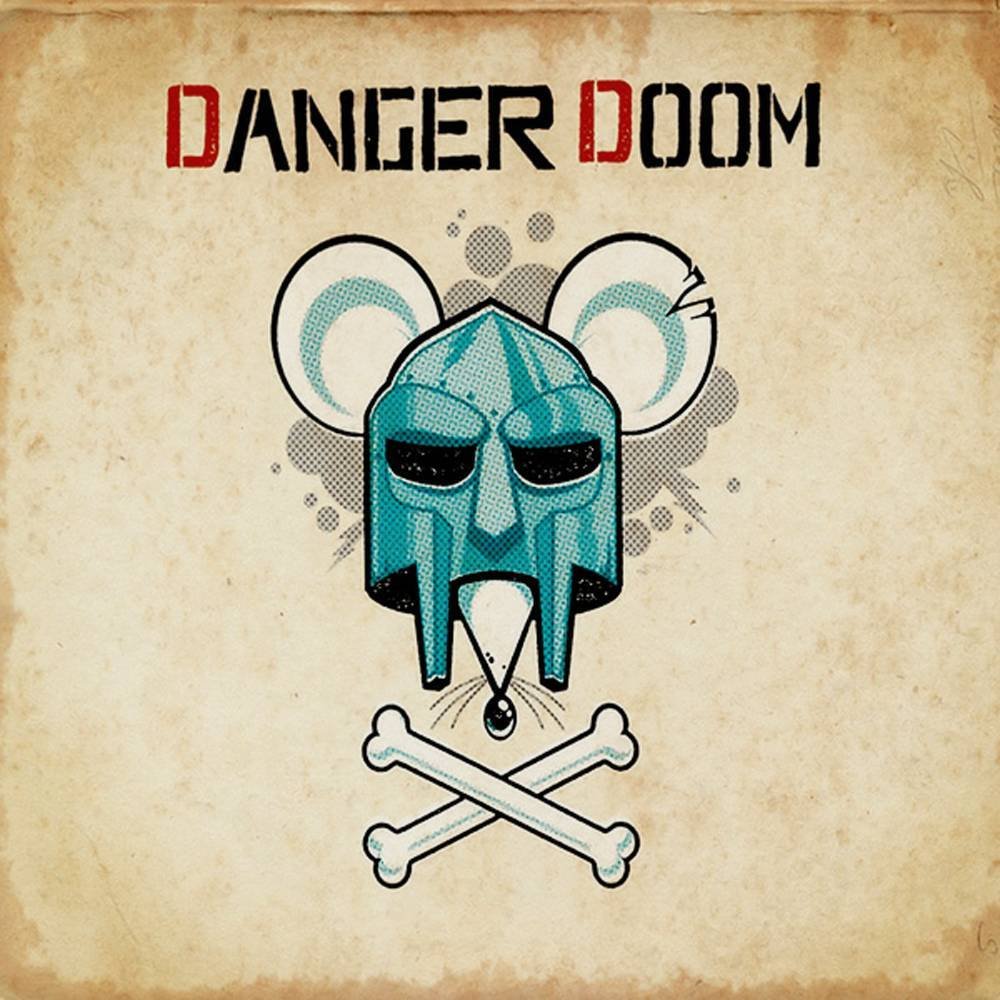Happy 10th Anniversary to JJ DOOM’s Key To The Kuffs, originally released August 20, 2012.
Daniel Dumile was an intensely private individual, especially after his decision to don his mask and be reborn as MF DOOM. Even so, much of the last decade or so of his life has been shrouded in mystery. He spent much of that decade living outside of the United States, “stranded” in the United Kingdom. Even when he was stateside, he rarely did interviews, even though he was quite personable and interesting when he did speak to members of the media. But once outside the United States, DOOM practically disappeared from the public radar.
Recently, the podcast Did I Ever Tell You The One About... MF DOOM shed some light on DOOM’s life during portions of that final decade. Specifically, the twelfth episode of the season, featuring a lengthy interview with Tom Brown, the head of the UK-based imprint Lex Records, features an account of his interactions with DOOM during this period.
Even though DOOM released quite a few projects throughout the early to mid ’00s, he was apparently not signed to a record deal. Brown sought out DOOM after a suggestion by producer Danger Mouse, who was signed to Lex, and collaborated with the Metal Faced Villain on The Mouse and the Mask (2005) project. The label had distributed the collaboration throughout most of the world, outside of the United States.
Brown inked DOOM to a lucrative multi-album deal with Lex. Born Like This (2009), which served as DOOM’s first project with the label, took a while to complete, but was ultimately an enjoyable entry in DOOM’s discography, with DOOM producing some of the material on his own, as well as teaming with past collaborators like Madlib and rocking over a few J Dilla beats.
DOOM’s follow-up to Born Like This was Key To The Kuffs, a collaborative album with Omar Jarel Gilyard a.k.a. Jneiro Jarel, a Brooklyn-born producer, who lived in England at the time of its recording. Released 10 years ago, it’s technically the final DOOM album where he assumes the majority of the rhyming duties. While it’s not one of DOOM’s most highly regarded releases, it’s underappreciated. It’s definitely different than anything he’d put out before or afterwards, as DOOM commits to forging a new path.
Key To The Kuffs came about due to rather unfortunate circumstances. After releasing Born Like This, DOOM ended up touring England and Europe as a whole, as he had cultivated a passionate and dedicated fanbase overseas. But leaving the U.S. was always a dicey proposition for DOOM: He was born in England, and due to various complications, was not a naturalized U.S. citizen.
Things went sour for DOOM after completing a European tour in early 2010. Carrying quite a bit of cash, a metal mask, and only a U.K. passport, he was denied re-entry into the United States. He found himself stranded in London, almost completely disconnected from the life he built; he had some relatives that lived across town, but he was separated from his wife and kids.
Listen to the Album:
Brown says that DOOM wanted to continue recording music and sought opportunities to do remixes and record guest appearances. He crashed at the pad of another Lex executive, sleeping by day, and recording music at the in-home studio at night before the label sprung for a flat. All the while, he searched for further musical inspiration.
Key To The Kuffs was influenced by DOOM’s frustration at being put in a box of sorts. According to Brown, when working to solicit beat-makers to work with DOOM, the producers would tell the Metal-Faced Villain that they had made him the perfect “DOOM-type beat” for him to rap to. Not wanting his music to become stale and predictable, he rejected the idea of using “DOOM-type beats,” seeking out a more unorthodox sound.
Around this time, DOOM would frequently ride through the streets of London in Brown’s BMW 3 Series, listening to an extensive collection of old Aphex Twin analogue recordings. DOOM took a liking to the music of Richard David James, and had Brown burn him a copy of the collection, when he would then chop into loops to rhyme over.
DOOM eventually started working with Jarel, who by the ’10s was an established artist at Lex. Jarel had recorded numerous albums for the imprint, including a few under the alias Dr. Who Dat? and with groups like Shape of Broad Minds and Willie Isz (the latter a team-up with Goodie Mob’s Khujo). DOOM and Jarel shared mutual friends and Jarel had served as DOOM’s DJ as Jarel’s tracks were appropriately different enough than anything he had rapped to before, which made the pair a suitably unorthodox fit.
Brown said that Jarel’s beats would usually start and end very weirdly, so DOOM would loop up these portions of the tracks as the material he wanted to rhyme to, at times meticulously stringing together portions of three different beats to make one unholy concoction. DOOM also pieced together all of the album’s skits, and after the album’s completion, would spend days or even weeks constantly re-mastering the recording. It furthered DOOM’s aim to record a completely different album than anyone had heard from him before.
DOOM starts thing off with “Guv’Nor,” rapping to a stuttering, chopped beat with his complex, slightly off-beat flow. Only DOOM could reference Eyjafjallajökull (an Icelandic volcano) and not have it crack the top five strangest things to appear on the album. He utilizes his winding, near-impossible-to-duplicate delivery on similarly odd tracks like “Rhymin’ Slang” and “Retarded Fren,” releasing a barrage of obscure pop culture references and vintage verbiage.
Ever since he donned the mask, DOOM kept things very close to the vest, revealing very little of himself through his music. A few tracks on Key To The Kuffs prove to be notable exceptions. As Brown said on Did I Ever Tell You About…, “most of the album is written about the experience of being an alien in London.”
With “Banished,” DOOM reflects on his London residency and his feelings of isolation. The song is barely organized chaos, as DOOM lets off a lengthy stream of consciousness double-time rhymes. The cluttered sonics mirror DOOM’s tangled mental state, as he raps, “Watch DOOM's laser / Graze you more worse than an Occam’s razor.” Regarding his prolonged and unintended London residency, he states, “No, not deported / Be a little minute before things get sorted.”
Enjoying this article? Click/tap on the album covers to explore more about MF DOOM:
“Borin’ Convo” also centers on DOOM working to adjust to life in a country where he had not lived since his early childhood. He wanders the streets of London, rocking a “chrome Kangol,” struggling to acclimate. “And did his best to blend in,” he raps. “Even till the endin', borderline pretending / Not quite, do it matter where you from? / Or more if you scared, prepared, or mad dumb.” With its plodding bassline and weird background vocal sample, it’s the song on Key To The Kuffs that shares the most DNA with DOOM’s previous releases.
DOOM vocalizes the loneliness of his new life on “Winter Blues,” as he pines for his wife, stuck on the other side of the Atlantic. On previous projects, DOOM has addressed romance with underpinnings of humor, such as Viktor Vaughn’s “Let Me Watch” or Madvillain’s “Fancy Clown.” “Winter Blues” is a sincere, almost sweet endeavor about longing for his wife.
Considering DOOM generally did not like the idea of showing emotion on record, “Winter Blues” is a revelation, with Jarel hooking up smooth string and piano samples to set the mood. “The phenomenal melanin bio-polymer,” he raps. “Follow with a glass a merlot, I could swallow her / Eat 'er up like a SnackWell / We could live forever like Henrietta Lacks’ cells.”
On “Bite The Thong,” featuring Damon Albarn (of Blur and Gorillaz), DOOM rejects compromising his music in pursuit of a hit record. Jarel creates a swirling mash of distorted electronic sounds, creating possibly the most bugged-out listening experience on the album. DOOM continuously mocks rappers obsessed with the pursuit of fame, rapping, “Go for the club kid. One hit wonder / Killing it, a brilliant career move blunder.”
DOOM spends portions of Key To The Kuffs discussing his effort to stay healthy in numerous ways. The appropriately titled “GMO” centers on DOOM’s disdain for “Frankenfoods” and the vast array of additives and preservatives that are present in much of the food supply. Portishead’s Beth Gibbons makes a rare appearance to contribute vocals to the song’s chorus. “Wash Your Hands” is the album’s twisted version of a “club” song, with DOOM describing his frustrating efforts to keep away from germs and other nasty particulates while hanging at a hopping night spot.
Two years later, DOOM put out his third and final Lex release, NehruvianDOOM (2014). DOOM mostly stayed behind the boards on the relatively brief project, producing every song and rapping on only a smattering of tracks, letting up-and-comer Bishop Nehru be the album’s central focus. Regardless, it was seen as DOOM’s return to familiar musical territory: the beats on the album either originally appeared on his Special Herbs instrumental series or were original DOOM creations created at the time of the project’s recording. Brown saw the project as a direct reaction to Key To The Kuffs not receiving nearly as much acclaim as his previous releases.
There’s a long and established history of artists deciding to change their artistic trajectory, just as there’s a long and established history of an artist’s most personally beloved project being the one that their fans just didn’t get. But even with its lack of accessibility, Key To The Kuffs has all of the lyrical hallmarks of DOOM’s previous releases, along with an added layer of vulnerability. It might not always be easy to digest, but it’s worth the effort.
LISTEN:





